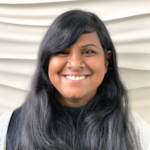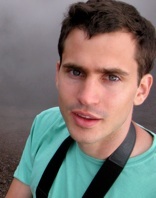Derek Dreyer, head of the Foundations of Programming research group since 2008, has been appointed as a Scientific Member of the Max Planck Society and Scientific Director of MPI-SWS as of May 1, 2022.
Derek became known for his pioneering work in programming languages and verification, with a particular emphasis on building rigorous foundations for establishing the reliability and correctness of realistic software systems. In recent years, he and his group have become especially well known for their work on the Iris and RustBelt verification frameworks,
...
Derek Dreyer, head of the Foundations of Programming research group since 2008, has been appointed as a Scientific Member of the Max Planck Society and Scientific Director of MPI-SWS as of May 1, 2022.
Derek became known for his pioneering work in programming languages and verification, with a particular emphasis on building rigorous foundations for establishing the reliability and correctness of realistic software systems. In recent years, he and his group have become especially well known for their work on the Iris and RustBelt verification frameworks, both implemented in the Coq proof assistant. Developed initially in 2015, Iris is a system for developing and deploying higher-order concurrent separation logics; though only 7 years old, it has already been used in over 60 papers published in top venues in programming languages. One of the most significant applications of Iris is RustBelt, which constitutes the first formal, machine-checked foundation for verifying the safety of the increasingly popular systems programming language Rust. These large-scale verification efforts place Dreyer's group at the forefront of programming languages research worldwide.
Derek has received numerous accolades for his research, teaching, and service, including the 2017 ACM SIGPLAN Robin Milner Young Researcher Award, a 2015 ERC Consolidator Grant, multiple Distinguished Paper Awards at top conferences like POPL, PLDI, and OOPSLA, the OOPSLA'18 Distinguished Reviewer Award, and most recently, the "Busy Beaver Award" at Saarland University for outstanding commitment to teaching. Under his mentorship, members of his group have also received numerous awards, including the prestigious ACM SIGPLAN John C. Reynolds Doctoral Dissertation Award and ACM Doctoral Dissertation Honorable Mention Award (for Dr. Ralf Jung).
Derek was born in New York City in 1980. He holds a Bachelor's in Mathematics and Computer Science from New York University and received his PhD in Computer Science from Carnegie Mellon University in 2005. From 2005 to 2007, he was a Research Assistant Professor at the Toyota Technological Institute at Chicago. He joined MPI-SWS as a tenure-track faculty in January 2008, only a few years after the Institute's founding, and has been an integral member ever since. We are thus very proud to be able to retain him as a Scientific Director of the institute.
























